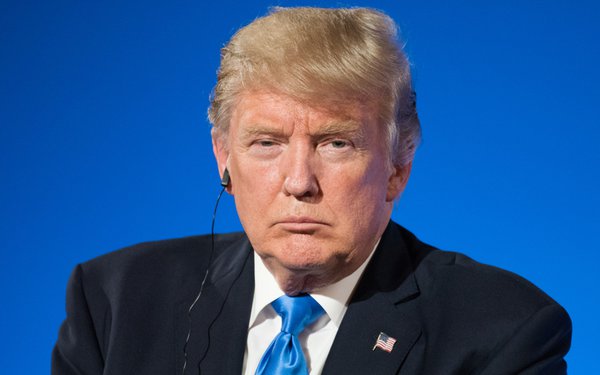
Brushing off President Trump’s threat to rein in social media,
Snap has decided to stop promoting his account on the Discover section of its flagship app.
“We will not amplify voices who incite racial violence and injustice by giving them free
promotion on Discover,” the company said in a statement. “Racial violence and injustice have no place in our society and we stand together with all who seek peace, love, equality, and
justice in America.”
Trump has roughly 1.5 million followers on Snapchat, while he had the potential to reach many more when the app was willing to promote his snaps.
Framing the
move as a political issue, the Trump campaign is accusing Snap of foul play.
“Snapchat is trying to rig the 2020 election, illegally using their corporate funding to promote Joe Biden
and suppress President Trump,” Brad Parscale, Trump 2020 campaign manager, said in a statement.
advertisement
advertisement
“Radical Snapchat CEO Evan Spiegel would rather promote extreme left riot videos and
encourage their users to destroy America than share the positive words of unity, justice, and law and order from our President,” Parscale added.
With the change, Snap joins Twitter,
which just began adding warning labels to Trump’s tweets, and specifically those that promote violence and attempt to mislead his more than 80 million followers.
Across his social media
accounts, Trump appeared to endorse the shooting of people looting businesses amid the growing protests in Minneapolis last week. “When the looting starts, the shooting starts,” he told
his followers.
Rather than promoting violence, Trump later said that he was merely stating a “fact.”
Yet, that was not before Twitter attached a warning label to
Trump’s threat, which read: “This Tweet violated the Twitter Rules about glorifying violence. However, Twitter has determined that it may be in the public’s interest for the Tweet to
remain accessible.”
In response, last week Trump signed an executive order designed to regulate speech on
social platforms.
The order calls for the Federal Communications Commission to propose rules about when and how social media companies may edit content online without forfeiting their
protections under Section 230 of the Communications Decency Act. Section 230 protects social-media companies from legal liability for the material their users post.
This week, several industry
organizations have come to the defense of social platforms.
On Tuesday, the digital rights group Center for Democracy & Technology filed a lawsuit
asserting that Trump’s order violates the First Amendment.
Then, on Wednesday, the Association of National Advertisers issued a
statement objecting to the order, and calling it “misguided.”
The decision by Snap further isolates Mark Zuckerberg, who remains committed to
letting Trump post whatever he pleases.
“I’m responsible for reacting not just in my personal capacity, but as the leader of an institution committed to free expression,”
Facebook’s cofounder/CEO posted on Friday. “I believe people should be able to see this for themselves, because ultimately, accountability for those in positions of power can only happen
when their speech is scrutinized out in the open.”
Breaking with Zuckerberg, hundreds of Facebook employees staged a “virtual walkout” this week to protest the
company’s refusal to impose its standard content policies on President Trump.
“Giving [people] a platform to incite violence and spread disinformation is unacceptable, regardless
of who you are or if it’s newsworthy,” Andrew Crow, head of design at Facebook’s Portal division, tweeted on
Monday. “I disagree with [Facebook cofounder-CEO Mark Zuckerberg’s] position and will work to make change happen.”
According to audio of a recent company meeting obtained
by The Verge, Zuckerberg is reconsidering the company’s content policies.
For now, however, Zuckerberg’s position is looking less popular by the minute.